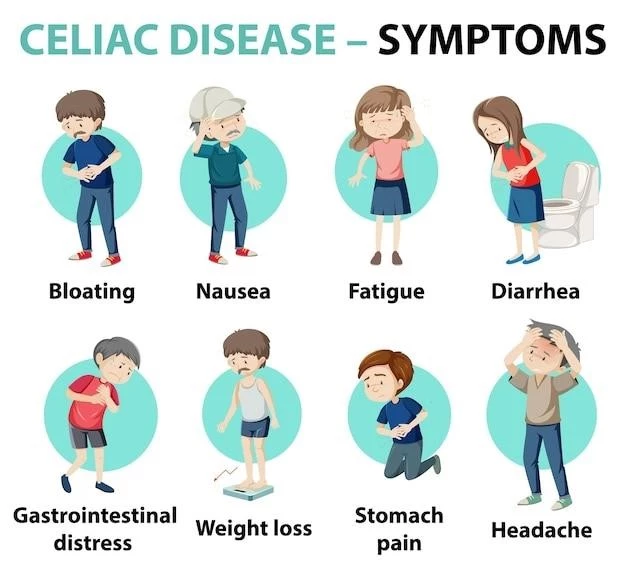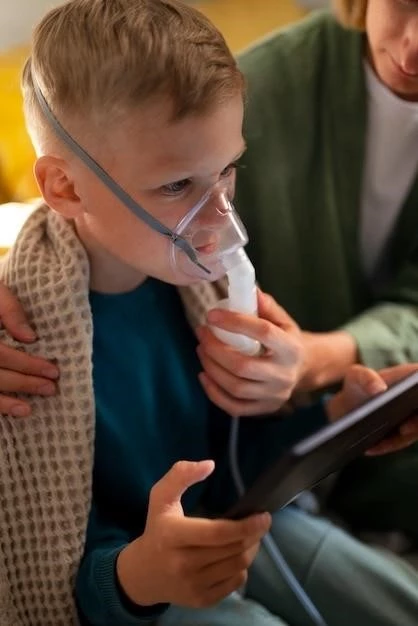Understanding Kawasaki Syndrome
When it comes to Kawasaki Syndrome‚ understanding its impact is crucial․ This article will delve into the different aspects of this condition‚ from symptoms to treatment options‚ helping you navigate through this illness with the right knowledge․

Overview of Kawasaki Syndrome
Kawasaki Syndrome is a rare condition that primarily affects children under the age of five․ It involves inflammation of the blood vessels‚ leading to symptoms such as fever‚ rash‚ swollen lymph nodes‚ and redness and swelling of the lips‚ tongue‚ hands‚ and feet․ This syndrome can be serious and may lead to complications affecting the heart‚ particularly the coronary arteries․ Understanding the symptoms and seeking prompt medical attention is crucial in managing this condition․ It is essential to consult a pediatrician if you suspect your child may have Kawasaki Syndrome․
Who Does Kawasaki Syndrome Affect?
Kawasaki Syndrome primarily affects children‚ with the majority of cases occurring in those under the age of five․ While it is rare‚ it is essential for parents and caregivers to be aware of the signs and symptoms of this condition․ Being vigilant and recognizing early indicators like fever‚ rash‚ swollen lymph nodes‚ and changes in the lips‚ tongue‚ hands‚ or feet is crucial in ensuring timely diagnosis and treatment․ If you suspect your child may have Kawasaki Syndrome‚ seeking guidance from a pediatrician is paramount for proper management․
Recognizing Symptoms of Kawasaki Syndrome
Recognizing the symptoms of Kawasaki Syndrome is crucial for early intervention․ Look out for signs such as persistent fever‚ rash‚ swollen lymph nodes‚ redness or swelling of the lips‚ tongue‚ and changes in the hands or feet․ If your child displays these symptoms‚ especially for an extended period‚ it is important to seek medical attention promptly․ Keep a watchful eye on any unusual changes in your child’s health and consult a pediatrician if you have concerns about Kawasaki Syndrome․ Early detection and treatment can significantly impact the outcome of this condition․
Treatment and Medication for Kawasaki Syndrome
When it comes to Kawasaki Syndrome‚ early treatment is essential․ Medical management often involves intravenous immunoglobulin (IVIG) and aspirin therapy to reduce inflammation and prevent complications․ It’s crucial to follow your healthcare provider’s prescribed treatment plan diligently․ Your child may require monitoring in the hospital to ensure a successful recovery․ Seeking immediate medical attention and adhering to the recommended treatment regimen is key in managing Kawasaki Syndrome effectively․ Always consult with healthcare professionals for the best course of action for your child’s condition․
Prevention of Kawasaki Syndrome
Unfortunately‚ there is no known way to prevent Kawasaki Syndrome as the cause of this condition remains unknown․ However‚ being aware of the symptoms and seeking early medical attention can help in swift diagnosis and treatment․ It’s important to stay informed about the signs of the syndrome‚ especially if you have young children‚ and to consult a pediatrician promptly if you suspect your child may be affected․ While prevention may not be possible‚ early intervention and proper medical management can make a significant difference in the outcome of Kawasaki Syndrome․
Complications and Risks Associated with Kawasaki Syndrome
While Kawasaki Syndrome is primarily known for its impact on blood vessels‚ it can lead to severe complications‚ particularly involving the heart and coronary arteries․ Without timely intervention‚ children with this condition may face risks such as coronary artery aneurysms or inflammation affecting the heart muscles․ Hospitalization for monitoring and treatment may be necessary to mitigate these complications․ It is essential to be aware of the potential risks associated with Kawasaki Syndrome and to prioritize seeking medical help if your child shows any concerning symptoms․ Consulting a pediatrician promptly is crucial in managing and minimizing the risks associated with this condition․
Diagnosing Kawasaki Syndrome
Diagnosing Kawasaki Syndrome involves a thorough evaluation of symptoms and medical history by a healthcare professional․ There is no specific test for this condition; therefore‚ the diagnosis is based on a combination of physical symptoms and ruling out other potential causes․ Blood tests‚ echocardiograms‚ and other assessments may be conducted to confirm the diagnosis․ If you suspect your child has Kawasaki Syndrome‚ prompt consultation with a pediatrician is crucial․ Early diagnosis is key to initiating appropriate treatment and minimizing the potential complications associated with this condition․ Trust your healthcare provider’s expertise in diagnosing and managing Kawasaki Syndrome effectively․
